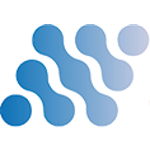
We could not find any results for:
Make sure your spelling is correct or try broadening your search.

 jav0033
4 minutes ago
jav0033
4 minutes ago
 jav0033
5 minutes ago
jav0033
5 minutes ago
 Steady_T
6 minutes ago
Steady_T
6 minutes ago
 crescentmotor
9 minutes ago
crescentmotor
9 minutes ago
 Chemdeps
13 minutes ago
Chemdeps
13 minutes ago
 kund
21 minutes ago
kund
21 minutes ago
 Thehubby
45 minutes ago
Thehubby
45 minutes ago
 BIOChecker4
54 minutes ago
BIOChecker4
54 minutes ago
 mike_dotcom
1 hour ago
mike_dotcom
1 hour ago
 toemind
1 hour ago
toemind
1 hour ago
 kund
1 hour ago
kund
1 hour ago
 poguemahone
2 hours ago
poguemahone
2 hours ago
 boi568
2 hours ago
boi568
2 hours ago
 kund
3 hours ago
kund
3 hours ago
 Jimbo50
3 hours ago
Jimbo50
3 hours ago
 game7alcs
3 hours ago
game7alcs
3 hours ago
 Jimbo50
3 hours ago
Jimbo50
3 hours ago
 mike_dotcom
3 hours ago
mike_dotcom
3 hours ago
 sumbuysumsell
3 hours ago
sumbuysumsell
3 hours ago
 go avxl
3 hours ago
go avxl
3 hours ago
 Kentucky123
3 hours ago
Kentucky123
3 hours ago
 frrol
3 hours ago
frrol
3 hours ago
 poguemahone
3 hours ago
poguemahone
3 hours ago
 JKS3
3 hours ago
JKS3
3 hours ago
 frrol
3 hours ago
frrol
3 hours ago
 tredenwater2
3 hours ago
tredenwater2
3 hours ago
 mike_dotcom
3 hours ago
mike_dotcom
3 hours ago
 crescentmotor
3 hours ago
crescentmotor
3 hours ago
 Reyeton
3 hours ago
Reyeton
3 hours ago
 chrismiss_everyday
3 hours ago
chrismiss_everyday
3 hours ago
 Kentucky123
3 hours ago
Kentucky123
3 hours ago
 poguemahone
3 hours ago
poguemahone
3 hours ago
 chrismiss_everyday
3 hours ago
chrismiss_everyday
3 hours ago
 sumbuysumsell
3 hours ago
sumbuysumsell
3 hours ago
 poguemahone
3 hours ago
poguemahone
3 hours ago
 poguemahone
3 hours ago
poguemahone
3 hours ago
 Kentucky123
3 hours ago
Kentucky123
3 hours ago
 BIOChecker4
3 hours ago
BIOChecker4
3 hours ago
 sumbuysumsell
3 hours ago
sumbuysumsell
3 hours ago
 mike_dotcom
4 hours ago
mike_dotcom
4 hours ago
 boi568
4 hours ago
boi568
4 hours ago
 poguemahone
4 hours ago
poguemahone
4 hours ago

It looks like you are not logged in. Click the button below to log in and keep track of your recent history.
Support: 1-888-992-3836 | support@advfn.com
By accessing the services available at ADVFN you are agreeing to be bound by ADVFN's Terms & Conditions